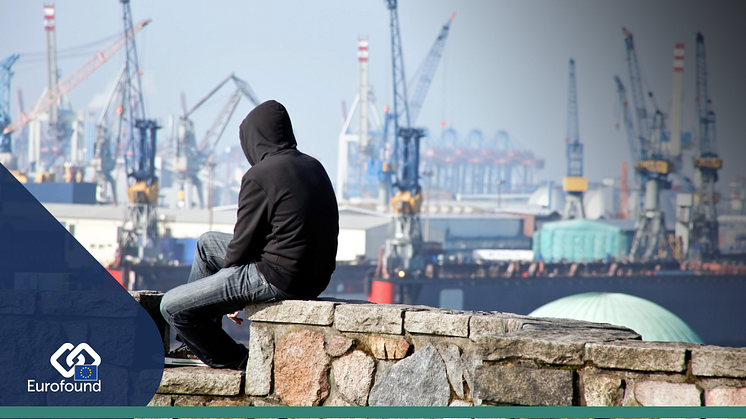
News -
2020 exposed fault lines in Europe’s labour market and society which may serve to shape the debate on the Future of Europe
COVID-19 sent shock waves across Europe’s labour market and society in 2020, with 5.7 million jobs lost in the first six months of the year. The pandemic exposed fractures in the world of work and beyond, with young people, women and lower-earners most impacted both in terms of both job loss and declining well-being. Temporary workers were most likely to find themselves out of work and among the least likely to access support, while those working in healthcare, social services and other frontline sectors were stretched to beyond breaking point. These issues are analysed in Eurofound’s new yearbook Living and working in Europe 2020.
Released just before the publication of the results of the latest Living, working and COVID-19 e-survey, the yearbook takes stock of how much has happened in just 12 months, projects what might lie ahead and sets the scene for EU policymakers as they seek to shape Europe’s policy responses. It notes the high levels of loneliness among the population and low levels of optimism about the future that came at the onset of the pandemic, as well as an initial dramatic fall in trust in the EU and national governments that coincided with the worsening economic situation. This situation improved with decisive government and EU intervention, particularly in terms of the rollout of financial supports last summer, but weariness and frustration with the overall situation endured until the end of the year.
The yearbook notes that, in terms of the world of work, 2020 may become simultaneously regarded as the year of the great telework shift and the crystallisation of the ‘digital divide’. By July 2020, nearly half of all employees in the EU had worked from home to some extent during the pandemic, with one-third of employees working exclusively from home. While the shutdown of workplaces was a vital measure to control the spread of the virus – and telework arrangements a necessary response to keep businesses and markets operating – these transitions came at a cost to many, particularly in terms of unpaid overtime and deteriorating work-life balance.
The yearbook pays particular attention to the impacts of the pandemic on gender equality, principally female job loss and the exacerbation of inequalities in unpaid domestic work under new arrangements introduced in response to the pandemic. It also looks at the rapidly changing situation of platform workers, cooperation with and between social partners in policy responses to the pandemic, and specific findings from the latest European Company Survey on what must be done to help workers and businesses meet the economic and labour market changes ahead.
Speaking on the publication of the yearbook, Maria Jepsen, Eurofound Acting Executive Director, said that while 2020 was a difficult year, there is hope for the future: ‘2020 brought much loss, and at times division, with the pandemic exposing fault lines in Europe’s labour market and society; but Europe also showed great resilience and demonstrated what can be achieved in cooperation. There are still significant challenges ahead, but together we can emerge from this crisis and set out a positive path for reshaping the Future of Europe.’
- Download the yearbook: Living and working in Europe 2020
Further information:








